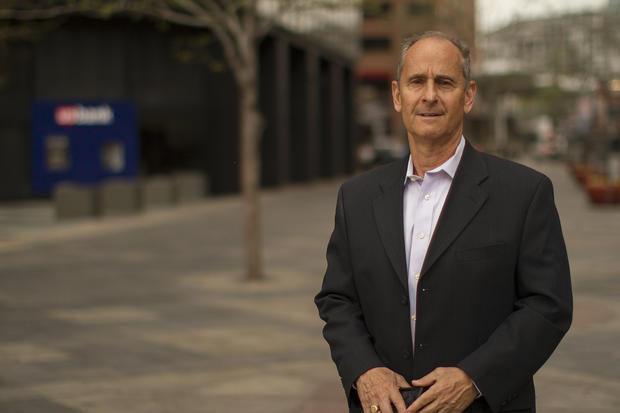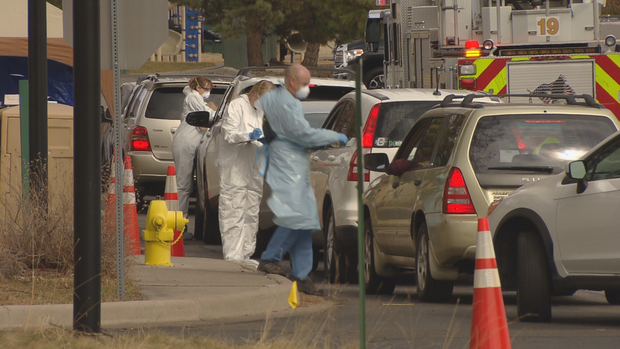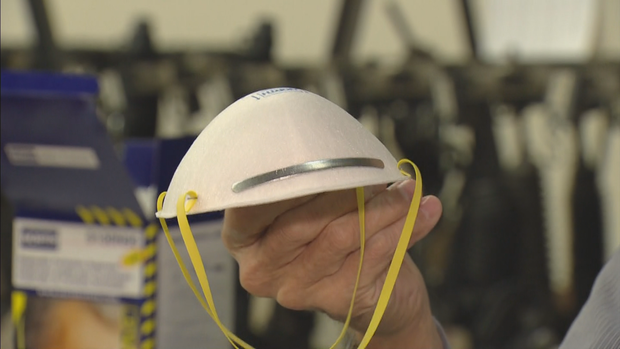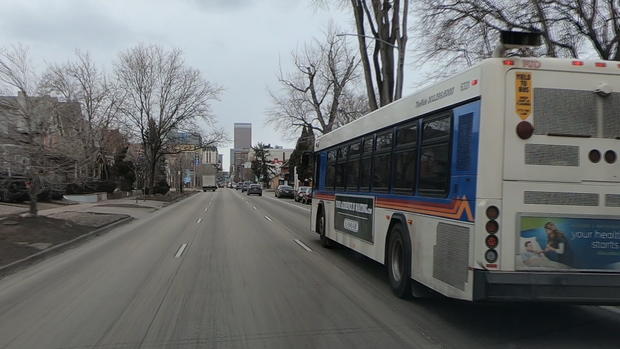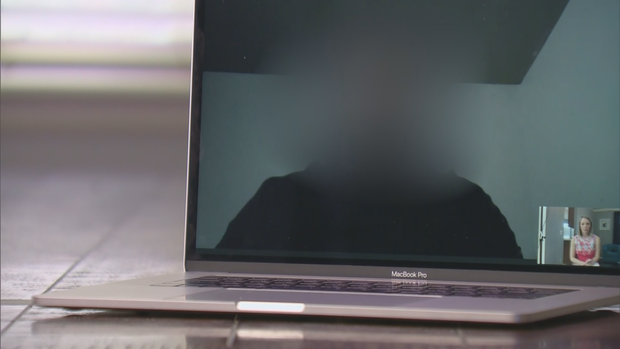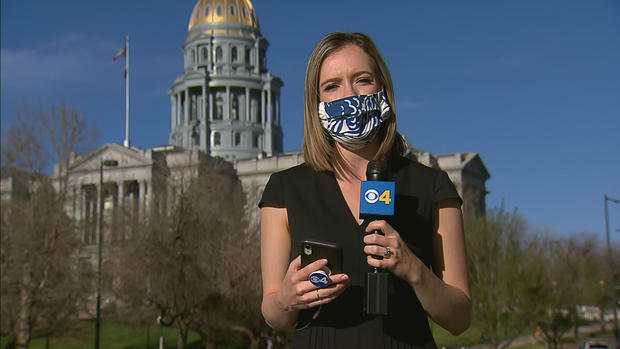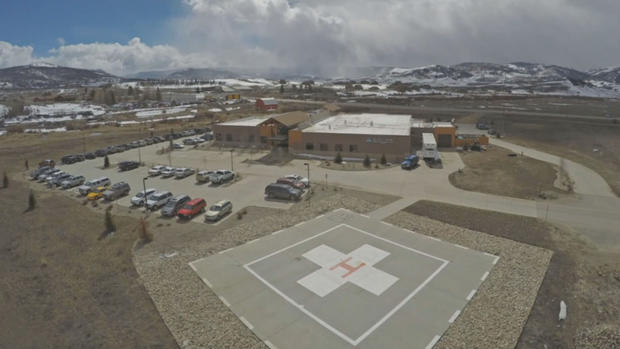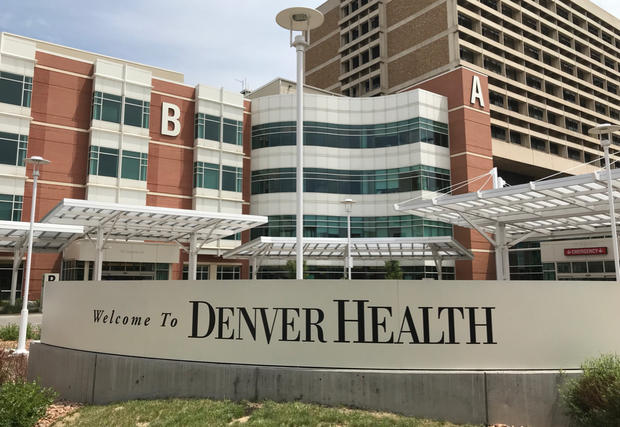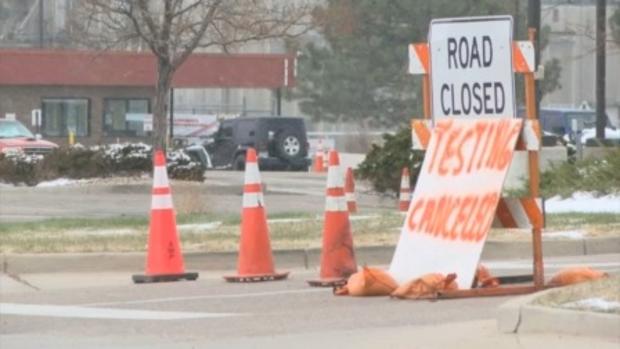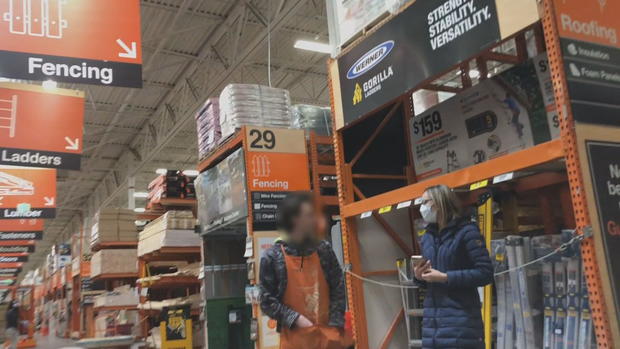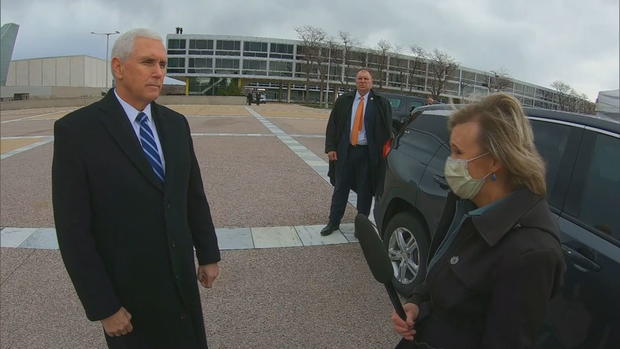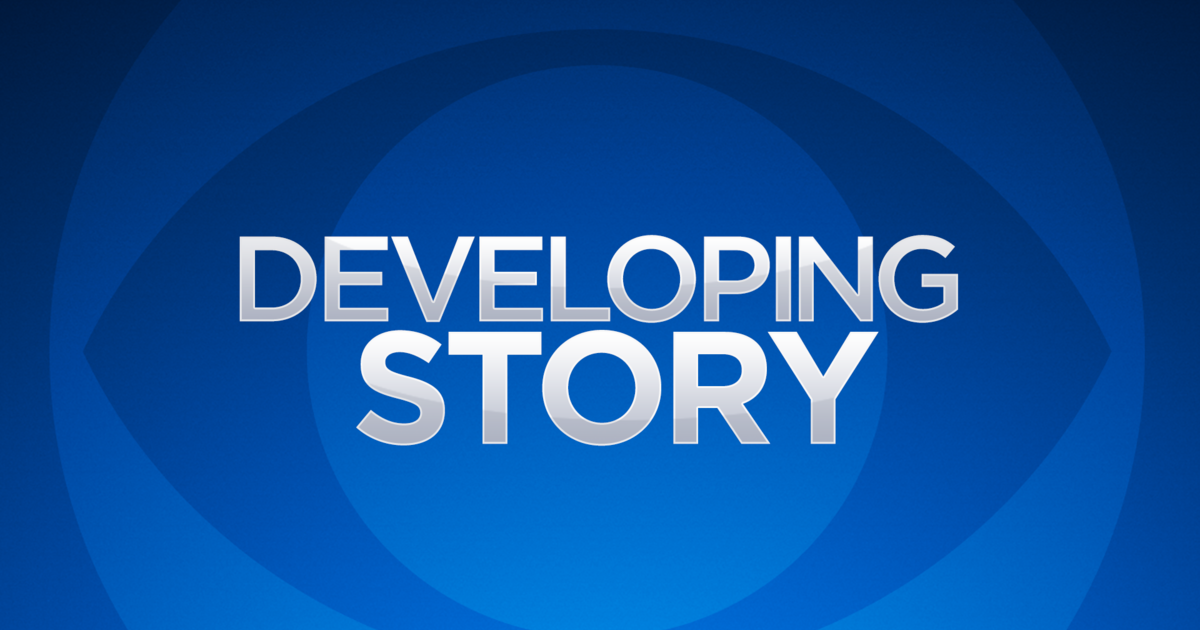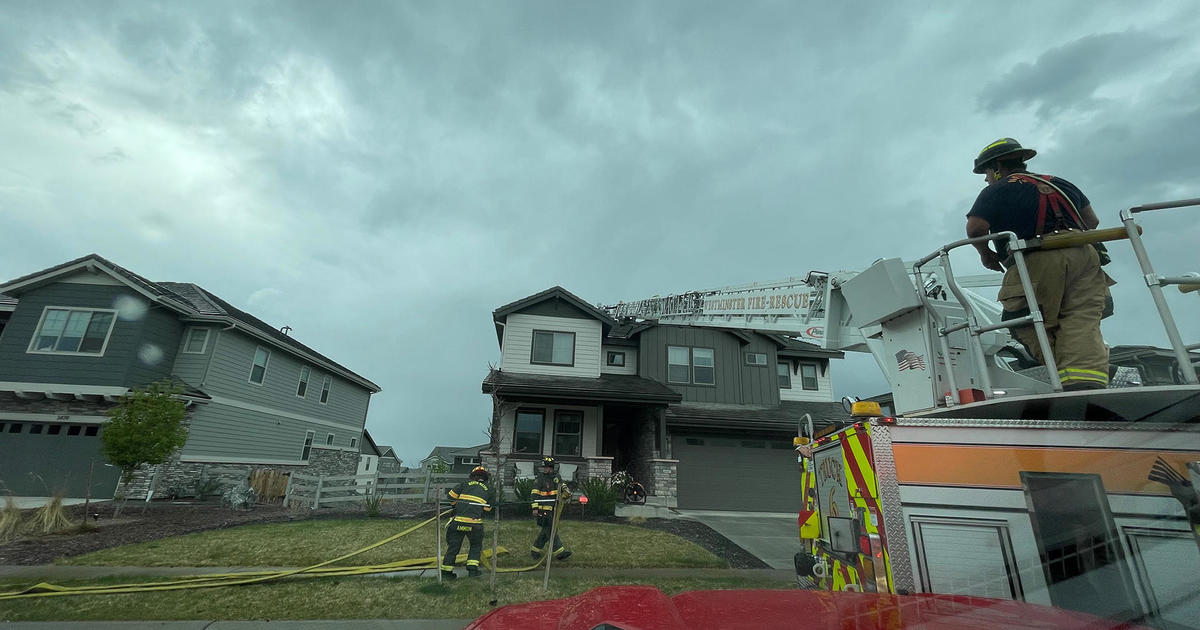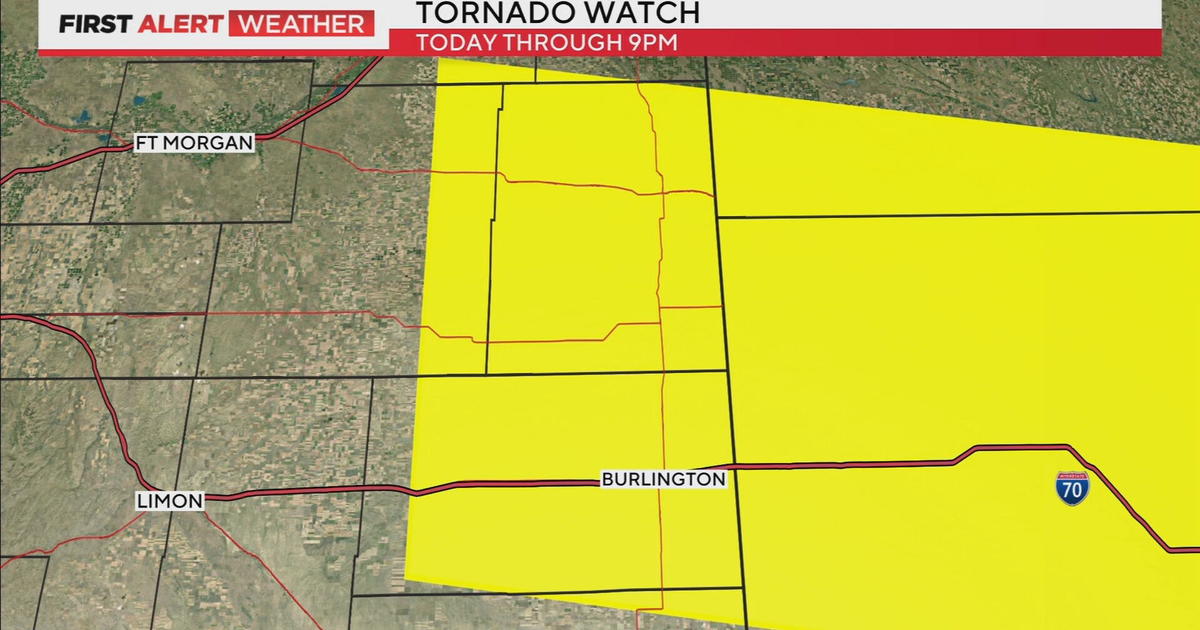The Importance Of Investigative Reporting During The Coronavirus Pandemic
DENVER (CBS4) - It's well before sunrise and investigative reporter Brian Maass is already deep into his planning process for the day. He's sent an email detailing progress on several stories, and suggesting reports that might turn for both our newscasts and our website in the day ahead. There are tips that still need to be vetted, interviews scheduled to confirm details or question public officials, reporting to be sent to the lawyers. And of course the writing, re-writing, editing and re-editing. Investigative reporting is time and resource intensive during the best of times, and these are not the best of times. Newsrooms are short on time, and short on resources -- just as our work is more vital than ever. Given that dynamic, you might ask -- why do it? Here's why we are putting a priority on investigative reporting here at CBS4.
First, investigative reporting -- done well -- is a service to the community. These days, it is literally a matter of life and death. Digging deeper, analyzing data, questioning public officials and holding leaders accountable is what they do every day. But now they are doing it to protect the health and safety of our front-line health care workers, essential employees, neighbors, friends and family. They do it to make sure business owners get the funds needed to keep their dream alive and keep employees on the payroll. They do it to make sure those who have lost their jobs can collect unemployment benefits so they can pay bills and provide for families. And they do it to make sure we're all protected from things like price gouging and scams so common in a crisis.
Nearly every angle on the coronavirus pandemic cries out for investigative reporting. Reporter Rick Sallinger told me, "Viewers need investigative reporting more than ever. With conspiracy theories shooting like comets across the internet, what is needed is the truth about the virus and everything related to it. Someone needs to be out there to set the record straight." In the very first days, our investigative reporters went to work on the glaring problems involving coronavirus testing and PPE supplies for hospitals. The first drive-thru testing site to open in mid-March was overwhelmed -- many had to be turned away and others waited in line for hours. Reporter Jamie Leary detailed the many problems and questioned the state health department about what happened.
Weeks later, Maass contacted major hospitals in Colorado and found they still did not have enough tests, with one emergency doctor telling him, "We've been begging for tests." This important reporting was an early signal that lack of testing would grow into a major issue facing Colorado and other states.
At the same time, investigative reporters at CBS4 were uncovering another growing problem: a severe shortage of PPE -- personal protective equipment. A report from Maass in the first days of the crisis revealed medical suppliers were telling Colorado hospitals they were out of stock. One doctor told Maass, "I feel like no one has our backs" and then described a "back alley deal" to get the masks she needed.
Maass went on to report several more stories on the PPE shortage, and told me, "I think these stories helped spark change at higher levels and created awareness of what was going on in the trenches. We were pretty relentless about this in the early going of the pandemic."
While hospitals were scrambling for tests and PPE, people were beginning to "shelter at home." There was a run on supplies like disinfectant and toilet paper, and investigative reporting revealed some people exploiting that fear for profit. In this story, Maass went undercover to confront those taking advantage of supply shortages by price gouging. And it wasn't just scammers taking advantage of the shutdown. Maass confronted the city when he learned that people ordered to shelter at home were getting parking tickets. Within a couple of hours, the city changed its parking enforcement plans.
As the number of coronavirus cases began to rise, investigative reporters revealed our public transit operators remained exposed. Reporter Kati Weis found RTD drivers were not given supplies they needed to protect themselves and few measures were being taken to keep them safe.
Days later, major changes were announced by RTD to clean the buses and keep drivers safe while on the job.
Around this same time, investigative reporting discovered another emerging vulnerable population: homeless people living in shelters and on city streets. Sallinger reported on the first two homeless people to test positive for coronavirus and questioned whether enough was being done to enforce social distancing and prevent rapid spread of the virus. Within days, the number of homeless testing positive had spiked and the city had to take rapid action -- detailed in this reporting from Leary.
Colorado's stay-at-home order created several new angles for investigative reporters. Thanks to several tips sent to our investigative team, it was becoming clear many employers were cheating the order. Weis found some employers exploiting loopholes to stay open and force employees to come to work.
Weis took her investigation to the state, which clarified the governor's order and opened a new tip line with the state Attorney General's office.
Data analysis during the stay-at-home order revealed another troubling trend: a dramatic decrease in the number of child abuse reports. Weis reported on the numbers and explained why the decrease was not a good thing, and how the community could help.
With everyone staying at home, businesses were hit hard. Maass found this even included the hospital business, with dramatic decreases in hospital visits. This meant that in the middle of a pandemic, some hospital workers were receiving pay cuts. The problem was even more dire in rural Colorado. Reporter Conor McCue found facilities in rural areas reducing shifts, cutting pay and even furloughing up to 20% of staff.
McCue told me, "For some time, the health and safety of Coloradans will depend on money, programs, resources and public health actions promised by our leaders. It's crucial we make sure those promises are kept and the proper decisions are made."
Many viewers were stunned to learn that health care workers were losing pay and even losing their jobs. They were even more upset by the next Maass investigation. He obtained bonus information for a dozen top executives at Denver Health Medical Center via a Colorado Open Records Act request. His reporting revealed bonuses ranging from $50,000 up to $230,000, one week after hospital workers were asked to take leave without pay or reduce their hours.
"I think our reporting certainly pressured them to give money back to front-line hospital workers that they otherwise might not have given," Maass told me. "But the true value was for employees of the hospital, who emailed me, texted and called by the hundreds, letting me know how thankful they were that we revealed this disparity, and also letting me know how angry and frustrated they were with their hospital leadership, who they felt had betrayed them." He added, "Some hospital workers called me sobbing. Others emailed me their paycheck stubs to show how much of a financial hit they were taking while their bosses were banking 19% bonuses. This reporting resonated."
The stay-at-home order was also causing a new hardship for many families: figuring out how to teach their children at home, often without the necessary technology. Shortly after many schools closed, and students told to learn from home, Weis found thousands of people in rural Colorado without internet access. Her reporting prompted several local providers to step up and offer free or discounted service to families.
Even in districts where technology was available, engagement was becoming a problem. Weis examined participation data from several districts. She found there was no consistent standard for measuring participation and engagement, and some district were not tracking participation at all. Regarding use of data in her reporting, Weis says, "The public, now more than ever, deserves to receive thoughtful, detailed and data-driven information."
MORE: CBS4 Behind The Scenes
While most of Colorado was at home, thousands of essential workers were still reporting for work -- and some clusters of coronavirus were beginning to emerge. Some of the largest clusters were in food processing facilities. Sallinger and McCue teamed up to cover a particular outbreak at the JBS meatpacking plant in Greeley. Reports of positive tests at the plant were leaked to CBS4 and Sallinger found that hundreds of workers were staying home, afraid they might also get the virus.
Testing for all employees was ordered, but McCue learned that the testing was suddenly canceled and workers were not told what was happening. Community leaders reached out to McCue to explain why the Latino community was particularly at risk during this outbreak and urged more transparency and greater safety measures at the plant. "It's an example of persistent, accountability-seeking reporting," McCue said.
Not all of the data analysis from our investigative team revealed troubling information. In this report, Weis examined hospital discharge data and found a "flattening of the curve." "There's so much data out there that can be easy to crunch and can really illuminate the critical issues of the day," Weis said. This data helped push Colorado toward a gradual reopening plan.
It was clear the reopening plan would come with its own risks. Our investigative reporters are looking at all aspects. Sallinger found that different plans for different counties was leading to confusion. "In some cases there was true confusion on the part of store owners," Sallinger said, "With state, county, city and health departments all prescribing different rules it's hard to know which to follow."
Weis went undercover and found many essential workers ignoring a statewide order that they wear masks while on the job. This story generated strong opinions, but Weis says, "If there are vulnerable populations watching, I hope the story helps them better understand the authentic reasons why some employees are not wearing face coverings. It illuminates a greater dialogue regarding the government's role during an unprecedented time."
Our political reporter, Shaun Boyd, is playing a key role in the reopening process -- questioning our elected leaders. Boyd told me, "Government officials never get a pass. In a crisis, the actions they take, or don't take, can have a profound impact on our lives." In early April, Boyd began pressing Gov. Jared Polis on plans for reopening and whether there was sufficient testing to reopen safely. Boyd says, "The Governor essentially ordered a shutdown of our economy. The ramifications are staggering and so is the power vested in this one person." A couple of weeks later, Boyd had an exclusive interview with Vice President Mike Pence during a visit to Colorado.
She pressed the vice president on whether the federal government will be able to meet the needs of governors who are demanding more testing and whether reopening timelines are safe. Boyd says during these interviews she reminds herself of this quote from Martin Luther King Jr.: The true measure of a man is not how he behaves in moments of comfort and convenience but how he stands at times of controversy and challenges.
This is investigative reporting that makes a difference in our lives. Many of these stories resulted in almost immediate action to protect the health and finances of all of us in Colorado. And we're just getting started. In fact, Maass, Sallinger, Boyd, McCue and Weis all believe the most meaningful investigative reporting of the crisis is still ahead of us. McCue tells me, "When crisis strikes, our leaders are put in positions to make unprecedented decisions, which often include unchecked power and astronomical sums of money. That combination doesn't always lead to the best results. I can't think of a more important time for journalists to dig in and seek accountability from our leaders." Boyd added, "Congress approved nearly $2.5 trillion in aid. That's a mind-boggling amount of taxpayer dollars ripe for abuse."
Public officials leading the response must continue to be examined, Weis says, "the actions of our government need to be scrutinized. It's also important to hold others accountable for following the directives of our leaders during this difficult time, to ensure the safety and well-being of the rest of the community. I intend to continue to do both in my work."
And this final thought from Brian Maass, "I see tremendous opportunity. Think of the massive amounts of taxpayer money thrown at this problem -- literally trillions of dollars with very little oversight. That will be our job going forward: dig through massive expenditures and find out if public dollars have been spent wisely." He adds, "In this chaos, there are many who will take advantage of others -- we've already seen it. We have a great opportunity here going forward to stand up for people who don't have the means to stand up for themselves."
